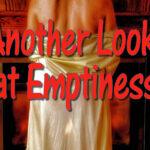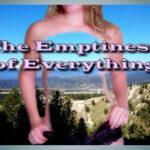Only through fearless exploration of the void can we come to terms with and work with the monsters of our own creation
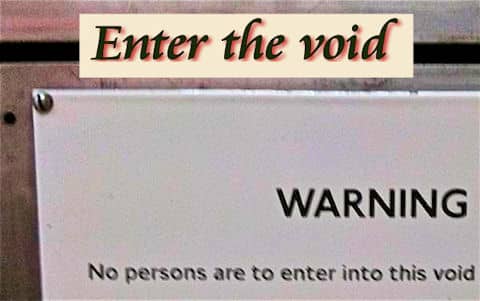

Psst!! Hey!!!
** Want more great writing designed to help YOU to shift your behaviour?
** Want to learn how to find, build or deepen your principal relationship?
** Want to know more about Zen living and being?
Check out Wayne’s books! (amazon link)
Or, check them out right on our site.
I received an interesting comment from my friend Karen:
I think sometimes people get jazzed by multi tasking or get warm fuzzies from accomplishing lots of “stuff”. Do you think people’s “Busyness” is yet another attempt to fill that endless “hole” without doing the hard work of being alone with the emptiness and/or having conflicts and discussions that need to happen to resolve the hard things? I think busyness may be an addiction like booze or chocolate, or at least a terrific distraction from really thinking about one’s life and doing anything meaningful about changing it.
I think so many people are stuck in this rut that I hope you will write more on this subject.
Well, you betcha!
Let’s look of one side of this–a part that was not mentioned, then get to the issues raised.
Busyness is encouraged by… wait for it… busIness. I suspect that corporate execs worldwide fairly peed themselves when the whole multi-tasking thing arose.
“Oh boy! Double the output from the same workforce! Let’s do seminars!”
I spent a long 10 months back in 1978 working for an insurance company, in the “Human Systems” department. This was “1984″-speak for “efficiency experts.”
They called us “analysts,” and our job was to go in and watch people fill out, say, “Form 101.” We wrote down every action, measured how far the person reached for a pen, for paper, etc., then added it all together, and figured out, from a huge book, how much time, statistically, filling out “Form 101” ought to take.
We looked for ways to shorten the fill-in time, which in many cases amounted to stuff like moving the stack of papers closer.
The people being observed were never middle management and up — nobody checked up on them! They were clerical workers, and they hated it when we showed up.
I got let go because I spent a lot of my free time in my departments, getting great results by finding ways to eliminate tasks the workers hated. My boss said, “We’re interested in what’s best for the company, not for the workers. Your priorities are backward.”
I was glad to leave, as the work seemed de-humanizing.
I left ahead of the great “multi-taking” push. I’m sure it was adopted whole-heartedly by that company. I’m sure they hired ambidextrous clerks, and tried to get them to fill out two forms at once.
OK, anyway… the take-away here is that multi-tasking is a lie. Try it. You can’t do two things at the same time and give both your full attention. What you can do is get good at flipping rapidly between two tasks, giving the illusion you are doing two things at once. Both things suffer from the shifting.
OK, so that’s my anti-multi-tasking screed. Back to the points raised in the comment. 😉
“I think sometimes people get jazzed by multi tasking or get warm fuzzies from accomplishing lots of “stuff”.”
See above.
We learned to measure our worth on how fast we move and how big our pile is.
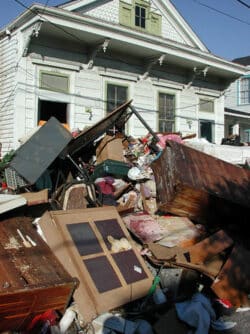
Yes, indeed, our culture is built with “stuff” in mind, or has been since Ford’s assembly line clunked into action. Sure, the automation of everything resulted in much lower costs, but ultimately, making “more, better, faster” into a religion has shifted human priorities.
And what gets lost in the process? Self-worth, relationship quality, reflection time. Exchanged for “Wow! You sure are a hard worker! Let me add to your pile so everyone knows!”
This shift is real, and it’s from internal to external validation. Titles and degrees become more important than depth and focus.
“Do you think people’s “Busyness” is yet another attempt to fill that endless “hole” without doing the hard work of being alone with the emptiness and/or having conflicts and discussions that need to happen to resolve the hard things?”
For sure.
People in general have never been much interested in the work required to do in-depth personal work. Busy-work (career, hobbies, etc.) has always been the most convenient escape.
Confronting the “void” (the endless “hole”) is (both from a Buddhist and Existentialist POV) the thing most resisted, because it is the most feared.
Let me split this into two. First, let’s look at “the hole.”
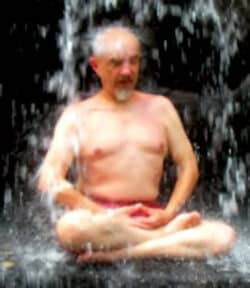
The hole is what appears when we stop busying ourselves. Meditation “proves” this.
You sit, you bring your attention inward, and almost immediately, the mind starts chattering, throwing up images, stories, aches and pains, all designed to do what we do best–distract ourselves from seeing “the great emptiness.”
But if you “just sit” with the sound and light show, soon you start to notice gaps between stories. As you choose not to be led astray by your stories and imaginings, the gap widens, and you peek through to… nothing. Emptiness. That which lies behind or beyond “form.”
If you keep looking, you see, as the Heart Sutra says, that “Form is emptiness, and emptiness is form.” Emptiness, or “the void,” is the screen upon which “real life” is cast. It’s the other side of the coin of “reality.”
To get to this place, though, requires the courage to just “sit there,” and be with the terror that arises at confronting “non-being.”
Nietzsche put it, “Battle not with monsters, lest ye become a monster, and if you gaze into the abyss, the abyss gazes also into you.“
The key word here is “battle.”
Meditation, properly practiced, is not a battle at all, but a “sitting with.” The void, the abyss, emptiness, is who we are; and we are also “fullness.” Our egos, designed to keep us stuck in illusion, wants us to fear the void. To do so, we fill it with monsters of our own making–what will people think, I am a bad person, people are out to get me–stories, fantasies designed to get us to stop looking and to go back to “being busy.”
The joke is, the void, the emptiness is… empty! We populate it with phantoms so that we “don’t go there.” We create it, we forget we created it, and then we scare ourselves with our forgotten creation.
The emptiness, vast and limitless, is as much our real home as is “the worlds” we concoct and call “form.” Or fullness.
Back to the quote: “…and/or having conflicts and discussions that need to happen to resolve the hard things?”
Begin here. Are the writer’s “hard things” the same for me, for you? Of course not. You are the source for what you declare to be “hard.”
Relationships end because the people have different stories about what is going on. Not one right, one wrong, but different. So, really, one is saying to the other, “My scary, self-created story is true, yours is false, and because you won’t do things my way, it’s all your fault.”
The writer accurately presents the “cure”–having conflicts and discussions.
Exactly!
For the purposes of this article, make it, “Be scared by the monsters of my own imagination, but keep going by letting go of the fear. Then, share it and work it through anyway.”
Most people choose to simply avoid.
They have a fight that accomplishes nothing, then run and hide, then come back and apologise –without ever once discussing, let alone resolving, the issue. Wash, rinse, repeat.
The issue, the fear, the terror, never gets discussed or worked through.
Why? Because the 2 people are too busy telling themselves stories, scaring themselves, and thinking ending a relationship is a better alternative than facing and sharing their self-created demons and monsters.
Silly in the extreme.
Often, busyness is the tool that leads to relationship destruction.
“..or at least a terrific distraction from really thinking about one’s life and doing anything meaningful about changing it.”
Yup. Too busy taking the kids to tap dance. Too busy at work. Too busy to sit down, every day, to express fears, angers, emotions. Too busy to sit still and talk issues through to resolution. Too busy for therapy. Too busy to meditate, to breathe, to process.
And then you get to find out what “too busy” bought you, as your self-created monsters bite you in the ass.
The internal monsters you fear are actually your friends. They tell you what to look at, and invite you to sit down and look. And then to do the “easy work” of sharing and working through. (It’s either easy or hard, depending on how you choose to see it.)

The void, the emptiness, is right here, right now, and always is. You can run, but you can’t hide.
So, sit down and have a look, a breath, and another look. If you choose, you will discover that the void looking back at you has a familiar face.
Yours.


